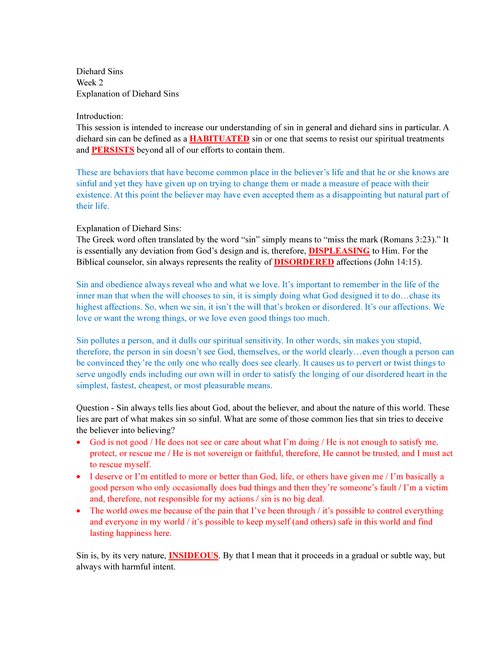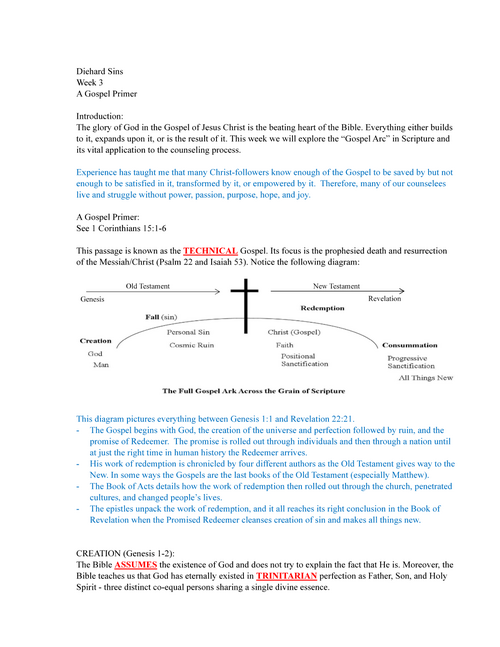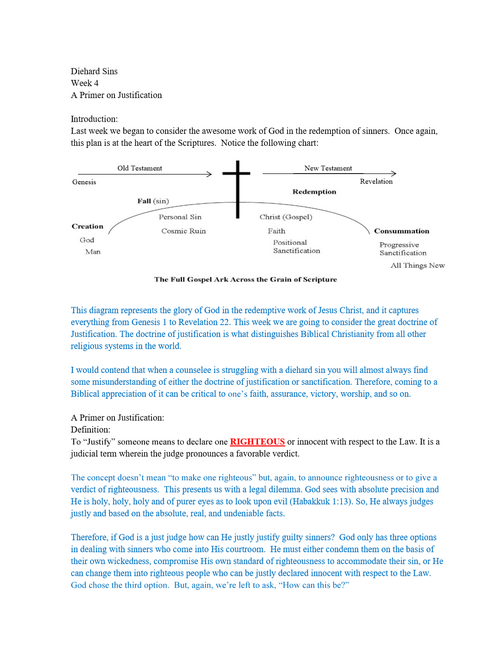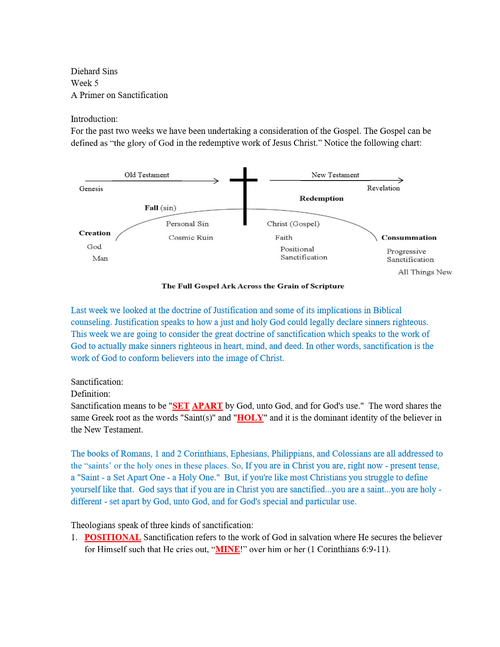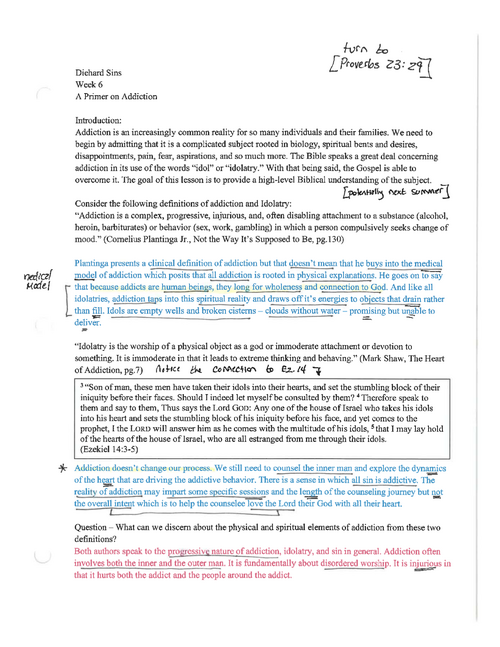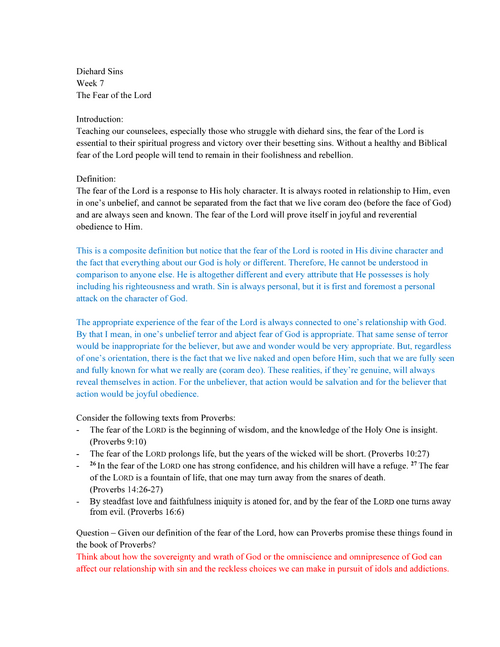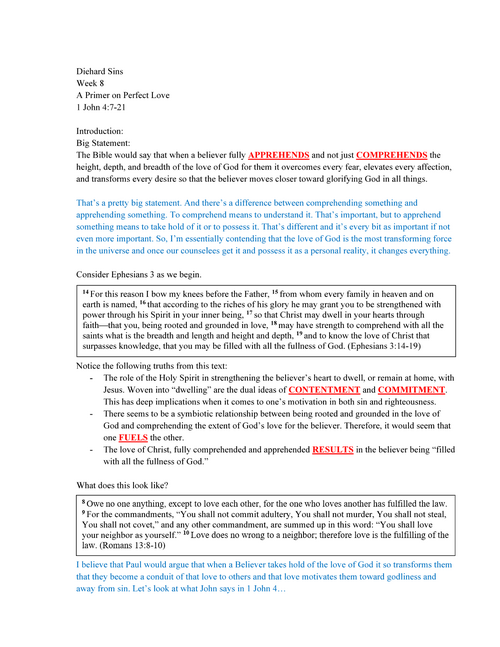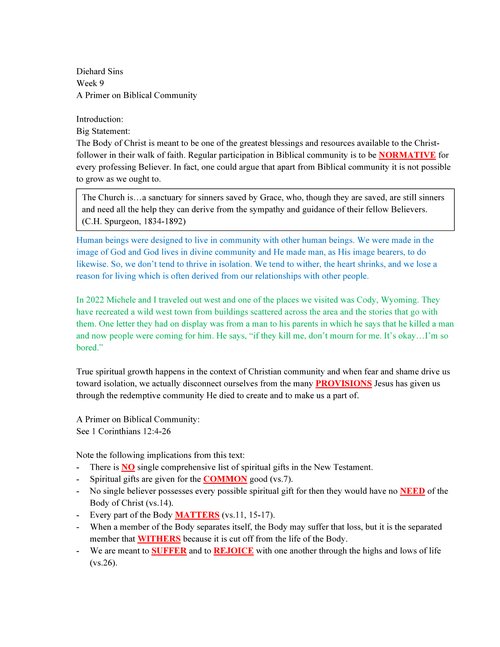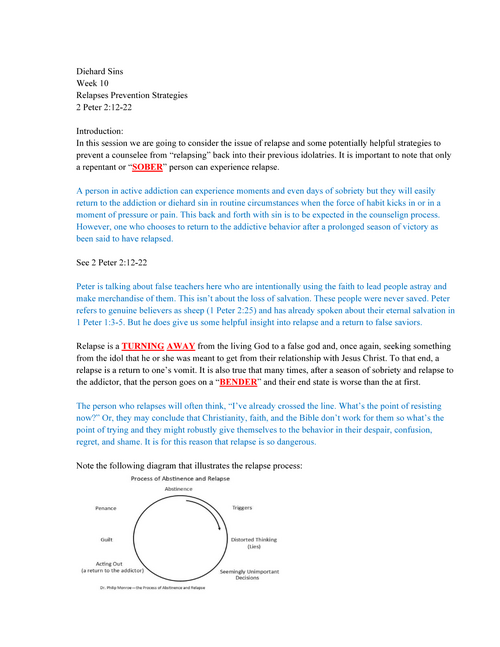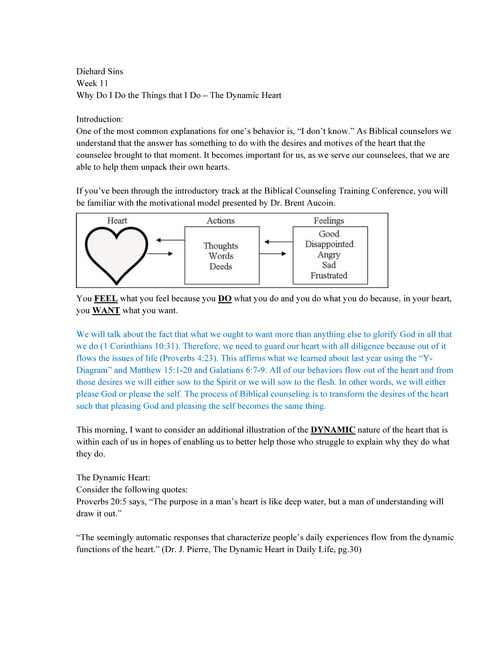Counseling Diehard Sins
One of the most common explanations for one’s behavior is, “I don’t know.” As Biblical counselors we understand that the answer has something to do with the desires and motives of the heart that the counselee brought to that moment. It becomes important for us, as we serve our counselees, that we are able to help them unpack their own hearts.
Consider the following quotes:
Proverbs 20:5 says, “The purpose in a man’s heart is like deep water, but a man of understanding will draw it out.”
“The seemingly automatic responses that characterize people’s daily experiences flow from the dynamic functions of the heart.” (Dr. J. Pierre, The Dynamic Heart in Daily Life, pg.30)
Dr. Pierre identifies three basic dynamic functions of the heart: -
The INTELLECT represents the thinking heart. It speaks to one’s ability to learn, process information, remember, evaluate propositional claims, and make interpretations.
The EMOTIONS represents the feeling heart. This speaks to one’s desires, values, fears, joys, disappointments, and the other emotional responses that people experience.
The WILL represents the choosing heart. It speaks to one’s core dedications, convictions, and commitments.
I have long believed that effective preaching will seek to touch all three of these dynamic functions. I want people to learn something. I want them to feel something, and I want them to decide about something. Lasting change results when all three of these core functions are engaged.
Pastor Doug Forman
If you are interested in pursuing training for Biblical Counseling, please see pastor Doug or email him at dforman@breesport.org
Consider the following quotes:
Proverbs 20:5 says, “The purpose in a man’s heart is like deep water, but a man of understanding will draw it out.”
“The seemingly automatic responses that characterize people’s daily experiences flow from the dynamic functions of the heart.” (Dr. J. Pierre, The Dynamic Heart in Daily Life, pg.30)
Dr. Pierre identifies three basic dynamic functions of the heart: -
The INTELLECT represents the thinking heart. It speaks to one’s ability to learn, process information, remember, evaluate propositional claims, and make interpretations.
The EMOTIONS represents the feeling heart. This speaks to one’s desires, values, fears, joys, disappointments, and the other emotional responses that people experience.
The WILL represents the choosing heart. It speaks to one’s core dedications, convictions, and commitments.
I have long believed that effective preaching will seek to touch all three of these dynamic functions. I want people to learn something. I want them to feel something, and I want them to decide about something. Lasting change results when all three of these core functions are engaged.
Pastor Doug Forman
If you are interested in pursuing training for Biblical Counseling, please see pastor Doug or email him at dforman@breesport.org

